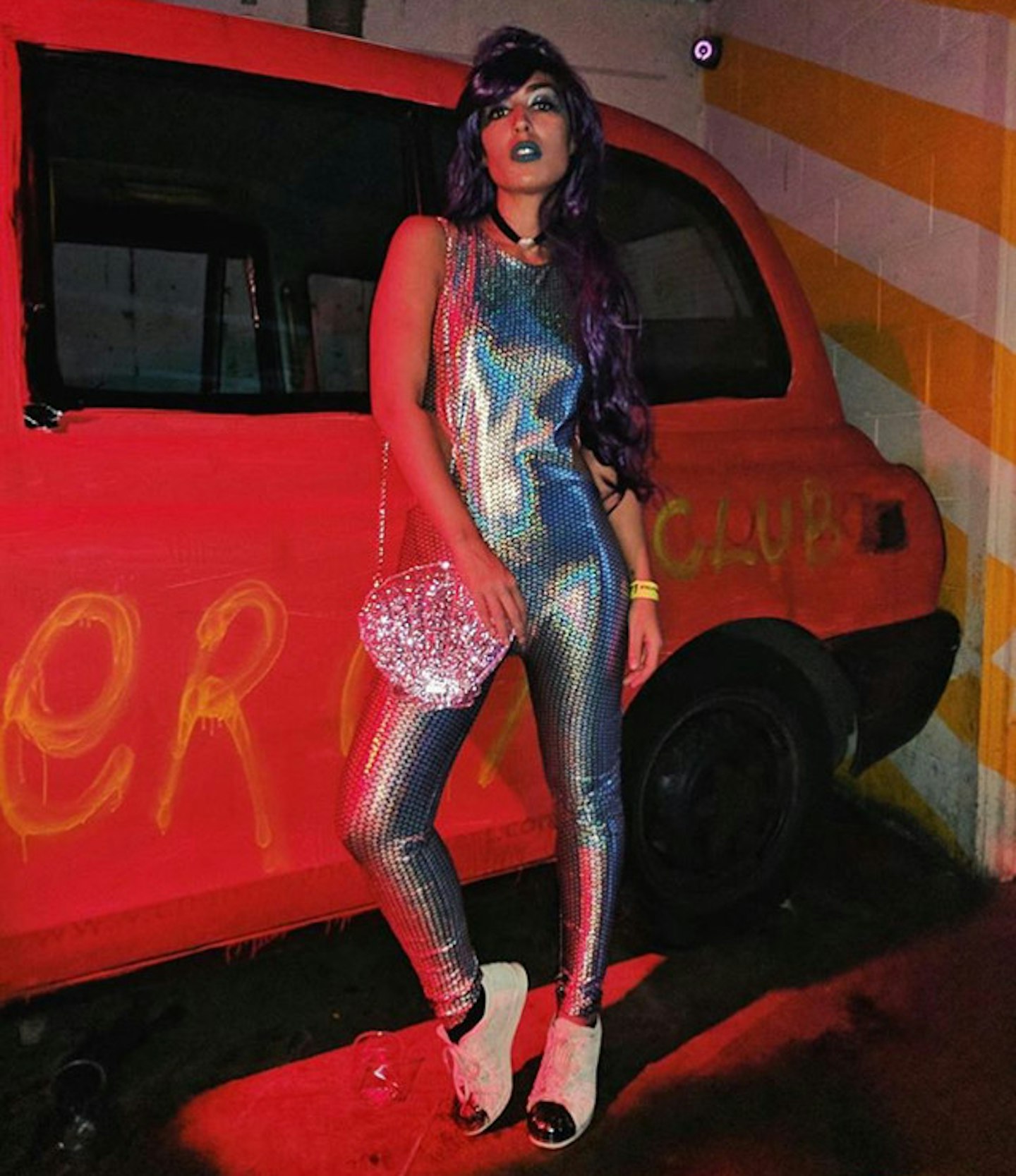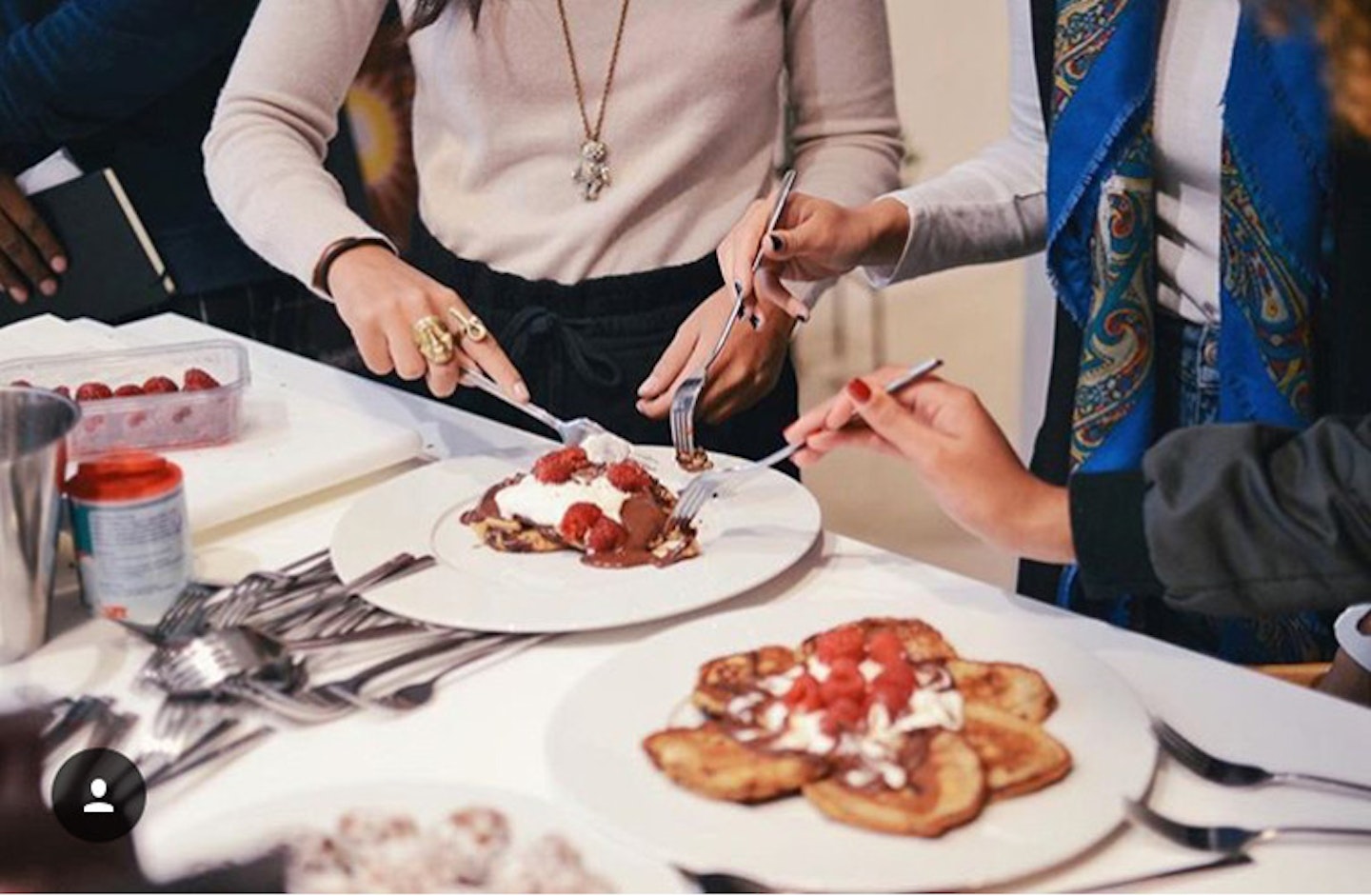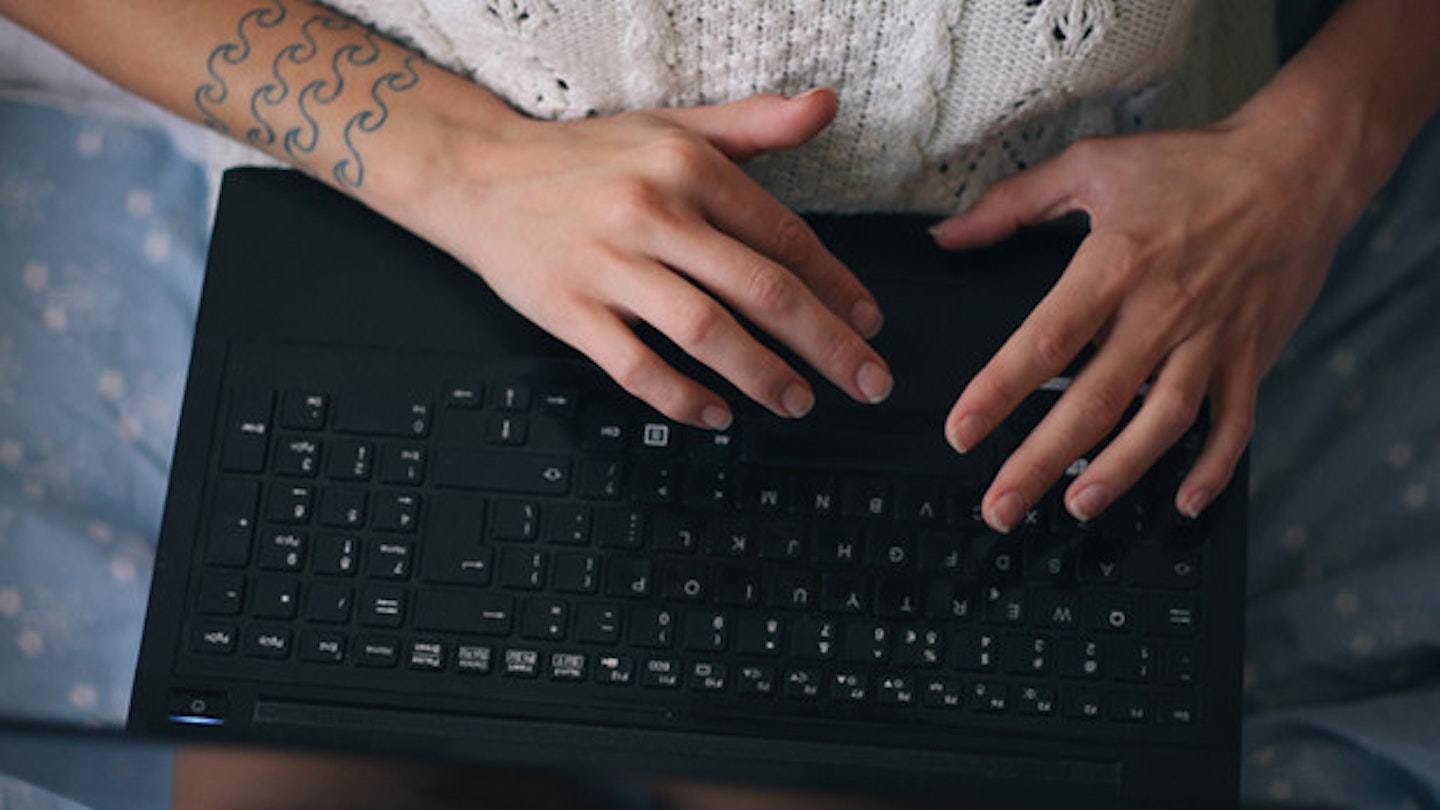I spotted her across the room and bounded up to her, enveloping her in a hug. To my initial surprise, when I then said ‘I miss you so much!’ one of my closest friends responded with, ‘Same! But I feel like I know everything about your life from social media anyway.’
I balked but then I realised, I guess she’s not entirely wrong. Was this why she hadn’t called or texted me much at all recently? And in that moment, I felt unutterably sad, and strangely really worried that this then meant I had to forever be the version of myself that social media sees. Did this mean there was no longer any room for my fully real, nuanced self; even when in the company of my closest friends? Who, then, would I speak to about all the stuff that doesn't fit neatly into that mould?
As do we all, I spend a substantial amount of time on social media. I share abundantly on Facebook, I post pictures on Instagram, links to my work on Twitter, and, more often than not, my phone’s selfie camera is in my face uploading to Snapchat pretty much before I’ve even fully opened my eyes in the morning.
Indeed, research suggests that young people spend 27 hours a week online. If anything surely that number seems a little low? More and more it seems we’re living out our lives online. You can’t really do anything if you’re not online. Being on Facebook is no longer procrastination, it’s often necessary for your work. If you did something and didn’t Instagram / Snapchat / Tweet it, did it even happen?
The Pew Research Centre has found that 94% of teens feel they spend time with their friends on social media, with sites like Facebook and Twitter accounting as one of the top ways of communicating with friends for 66% of teens surveyed. What’s more, 83% said social media makes them more connected to information about what is happening in their friends’ lives, with 70% saying the platforms better connect them to their friends’ feelings, too.

I guess my friend must have thought the things I was comfortable enough to share to literally thousands of people, were the same things I would share with my closest friends. She was wrong. But she’s not the only one to think like that. Natasha Anner, who works in social media, said: ‘[Social media] makes us lazy with keeping in touch because people think they know how you are and therefore don’t need to check in as much.’
The thing is, what we are sharing on social media is ultimately a curated version of our lives. The important stuff; the stuff we are most likely to need the support of our friends to face, the stuff they might need to coax out of us, or pass us some tissues while we’re unloading, is actually what we’re not likely to take to our various social media channels to say.
When my long-term boyfriend and I broke up last year, I took a social media hiatus. When my grandmother passed away, I didn’t mention it online. When I spent the day crying into my pillow last week, too overwhelmed by life to participate in it, I didn’t take to Snapchat to share my tears.
The thing is, we know this - kind of. Taking to my social media feeds to gauge some opinions for this article, the majority of people wrote back that ultimately they know that social media is a curated reality, except for some reason, we don’t act on that information.
Mooez Ali, co-founder of Comb, a personalised mobile fashion app, explained: ‘I know people who present every “happy” detail of their lives on social media, but behind the scenes it's a much darker picture… Social media should make us better connected, but societal expectations and stigmas about what should and shouldn't be posted online make it such a mess sometimes.’
‘That said,’ he continued, ‘without a doubt, most of the opportunities I've had personally have all been through the power of social.’ Indeed, he’s far from the only one, and thus the double edged sword. With potential employers and partners and literally anyone else in the world wide web able to peer in and make judgements and with that, decisions: on their desire to hire someone, on their desire to date someone and etc., it makes sense, perhaps, that we’re so keen to only share the good.
David Brudö CEO and Co-founder at personal development and mental wellbeing app Remente explains: ‘The key reason why we don’t share the negative parts of our life online is because they don’t match up to the persona that we want to represent. We want to receive “likes” and validation for the photos we post of us having fun; we want to look socially engaged and popular. Naturally, we will not advertise a break-up or a falling out with a friend as that contradicts the happy and fulfilling life we prefer to share.’
Lindsay Williams, a writer who once penned a piece on the ‘6 ways social media is ruining our friendships’argued that not only is social media responsible for creating a ‘false sense of intimacy, fostering an illusion of community, keeping us from being fully known and turning us inward,’ it also sets unrealistic expectations.
She went on to give the example of a friend who was recently offended because she had had no idea of a major milestone that had happened in her life. ‘Didn’t you see it on Facebook?’ the friend reportedly asked, incredulously. The writer goes on to suggest that these days, when you get promoted, get engaged or hit any number of milestones, there’s no need to call your best friend anymore. After all, for better or worse, she’ll just find out on Facebook, in sickness and in health.
However, it’s not all bad. There are advantages when it comes to making and maintaining friendships and relationships, from the professional to the romantic and beyond. I met a real-life, actual best friend on Instagram. Fast forward three years and she’s been an incredible source of support, we’ve been on countless holidays together and she’s even asked me to be a bridesmaid at her wedding next year.
Social media can also be hugely beneficial in terms of keeping up friendships that may otherwise have dwindled. Sarah Buglass, a PhD researcher at the Division of Psychology at Nottingham Trent University explains: ‘People have such busy lives that it would be difficult to maintain face-to-face connections with all of their friends on a regular basis. Social media and mobile technologies allow people to maintain these relationships that might otherwise fizzle out.’

Writer Rachael Schultz agrees, adding: ‘social media is not a replacement for face-to-face time, but I do think it has made me stay much more connected with friends than before… I think following people I love but aren't super close to on Facebook, Instagram, and Snapchat lets me know what they're up to and also [makes me] feel like we talk more, even if it's just comments like "looks so fun!" or "where are you right now?’
But while no doubt these social media interactions can help foster a sense of closeness, research from the University of Oxford found that using social media exclusively to interact with close friends may inadvertently cause the bonds of these friendships to weaken. Sarah Buglass agrees, explaining: ‘Some may feel that remaining connected online is enough to continue calling someone a ‘friend’ – however, true friendship relies on individuals taking the time to interact with each other on a personal level, not just by viewing or exchanging multimedia content.’
‘While it is certainly possible to keep up to date with major life events (e.g. birthdays, births, weddings, deaths), a true reflection of their day to day existences might be much harder to gauge [as] there is a tendency to post a skewed representation of our lives on social media.’
Perhaps, therefore, what’s important to remember is that while social media is great for the surface stuff, a sort of visual CV for your life, you won’t ever know everything about someone’s life from their social media. It’s the equivalent of bumping into someone in the street for 60 seconds and exchanging a quick conversation before going on your way. You’re getting the glossy, perfectly edited, nicely curated bits. If that’s the only basis you want your friendship to be formed on then shrugs scroll away. For anything more than that it’s still just as, if not even more, important than ever to actually have real conversations away from the prying eyes of thousands of strangers, your boss and your mum. Indeed, there’s only so much you can gleen about someone’s life from the VSCO filter they placed on their lunch.
Like this? You might also be interested in:
Meet The Millennials Who Are Ditching Smatphones For Good** **
Follow Alya on Twitter @MoorrizZLA
This article originally appeared on The Debrief.
